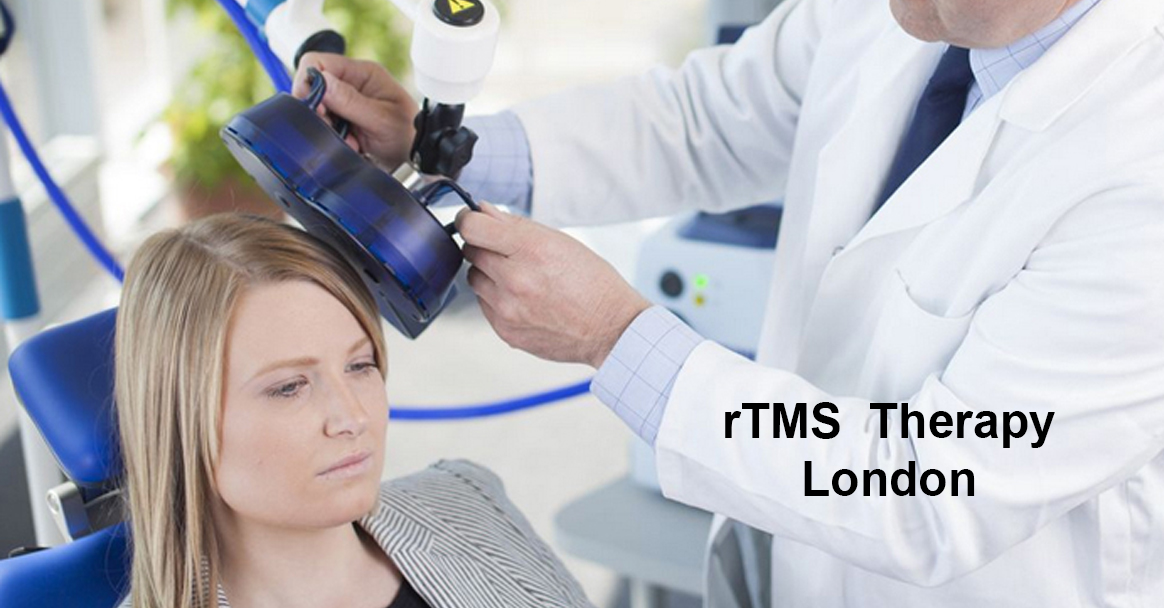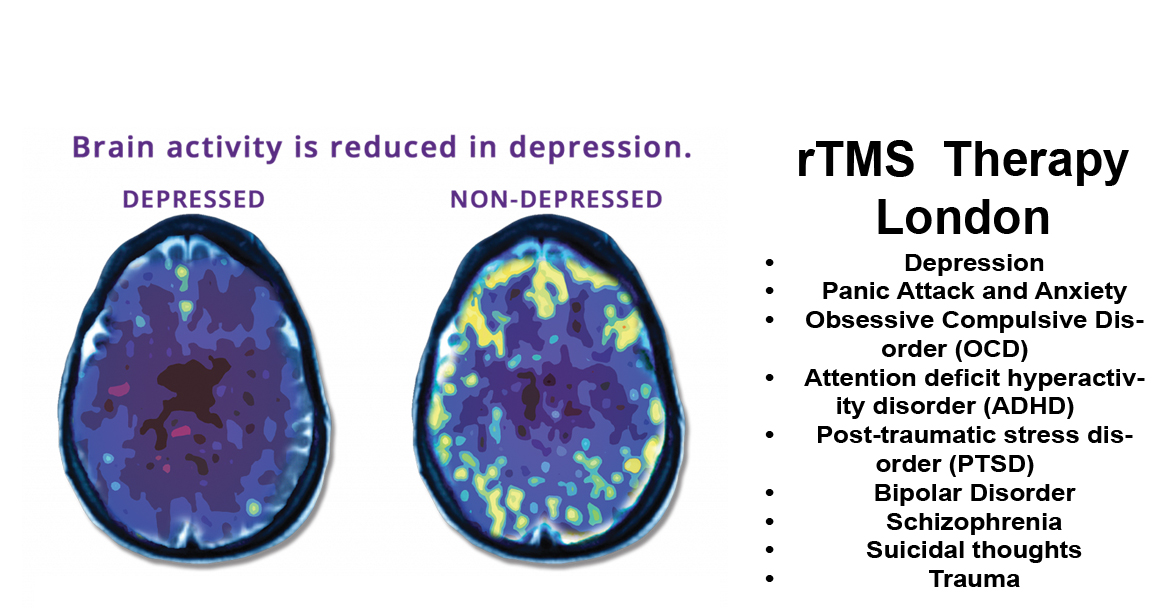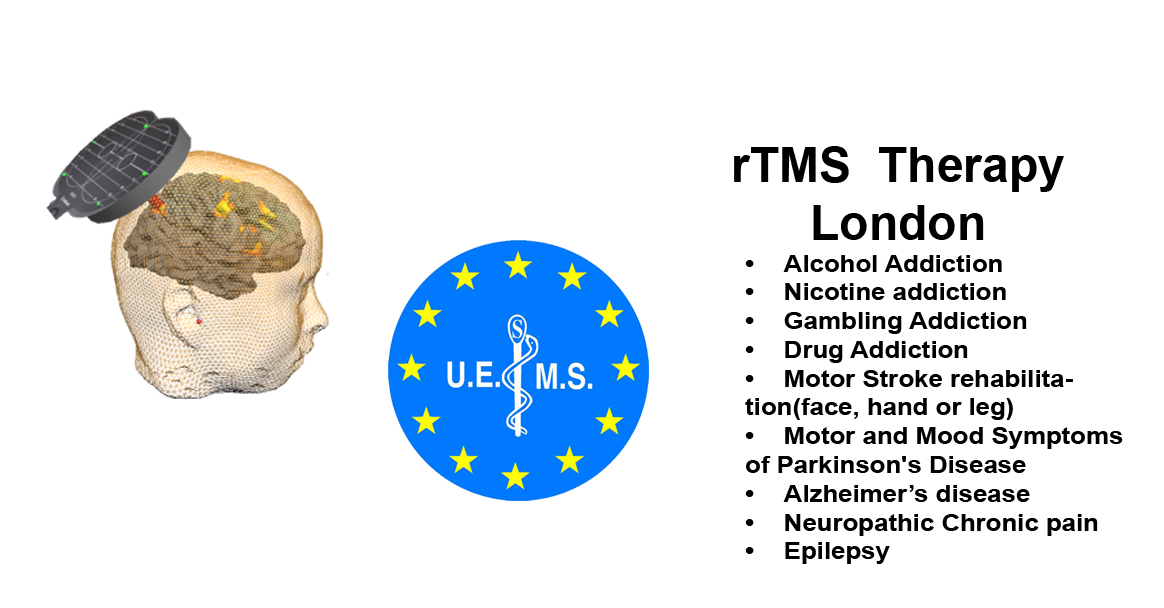MOST EFFECTIVE TREATMENT Combining Transcranial Magnetic Stimulation and Cognitive-Behavioural Therapy in Treatment-Resistant Depression
For individuals who have not responded adequately to medication or previous talking therapies, rTMS combined with Cognitive Behavioural Therapy (CBT) can be a useful option within a carefully planned treatment pathway. Clinical studies suggest that a substantial proportion of such patients may experience significant symptom improvement when rTMS is added to standard care, but responses vary and no specific outcome can be guaranteed. rTMS-treatment has a success ratio of 75% when combined with Cognitive Behavioral Therapy (CBT).
Experience the effect of rTMS with Cognitive Behavioral Therapy (CBT), a talking therapy helps a patient with depression to focus on understanding how three things - thoughts, feelings, and behavior - affect each other. The goal of CBT for depression is to start targeting problematic thoughts and actions that are occurring in the present – as opposed to looking back in the past for a cause – teaching patients skills that they can use to become more aware of their negative thoughts, evaluate their validity and, when not accurate, replace them with more realistic/balanced ways of thinking.
More than 300 million people around the world have depression, an estimated 1 in 6 people experienced a common mental disorder in the past week which is a common mental health problem with multiple symptoms such as low mood, loss of interest or pleasure, feelings of guilt or low self-worth, disturbed sleep or appetite, low energy, and poor concentration.
There are many different types of depression. Most common types are : clinical depression, depressive episode, recurrent depressive disorder, reactive depression, dysthymia, manic depression, psychotic depression, prenatal or post-natal depression, seasonal affective disorder (sad)
Symptoms:
Depression symptoms may vary among people but generally encompass a feeling of sadness or hopelessness.
- These can include:
- Tiredness and loss of energy
- Sadness that doesn’t go away
- Loss of self-confidence and self-esteem
- Difficulty concentrating
- Not being able to enjoy things that are usually pleasurable of interesting
- Feeling anxious all the time
- Avoiding other people, sometimes even your close friends
- Feelings of helplessness and hopelessness
- Sleeping problems – difficulties in getting off to sleep or waking up much earlier than usual
- Very strong feelings of guilt or worthlessness
- Finding it hard to function at work/college/school
- Loss of appetite
- Loss of sex drive and/or sexual problems
- Physical aches and pains
- Thinking about suicide and death
- Self-harm
Treatment-resistant depression is a major clinical concern with a significant burden for patients, their families, and the health care system. Repeated Transcranial Magnetic Stimulation (r-TMS) combined with Cognitive Behavioral Therapy (CBT) have shown success in treating traditional treatment-resistant individuals with major depression disorders . rTMS therapy deliver non-invasive, magnetic stimulation using brief duration, the electromagnet stimulates areas such as the left prefrontal cortex for mood regulation and depression symptoms. The left-prefrontal cortex is where mood control and executive functions are regulated. Therefore, in individuals with depression, it is hypothesised that there is decreased activity in this region. When pulses of tms are delivered repetitively, this is called repetitive TMS, or rTMS. These pulses can be delivered at either high (10–20 hz) or low frequency (less than or equal to 1 hz)
How is our Transcranial Magnetic Stimulation (TMS) & Cognitive Behavioral Therapy (CBT) works.
First step initial consultation & mental health assessment:
You will have a private consultation and mental health assessment for your a structured mental health assessment to understand your current emotional health and to ensure that rTMS is appropriate for you. This is the first step towards forming your personalised treatment plan. Initial consultation before treatment can begin, we need to carry out a consultation to confirm that tms is right for you.
Second step: rTMS treatment combined with Cognitive Behavioral Therapy (CBT): Results from your mental health assessment are used to map regions of your brain that require focused treatment. Treatment will be 2-3 sessions each day and total 3 days a week. Between the rTMS sessions, you will relax and have the chance of talking Specialist Psychologist Alptekin Aydin. Cognitive behavioral therapy will help you to understand some of the depression triggers and cause while your brain rest between the rTMS sessions. Each rTMS sessions should be 20-30 minutes and require 1 hour break so your neurons will communicate and observed rTMS therapy. Typically over a period of 2-3 weeks. Treatment can be tailored to suit your own schedule.
Third step: post-treatment analysis & review: On completion of rTMS treatment, your progression will be evaluated with a post-treatment mental health assessment. You will be able to discuss your results and progress with psychologist alptekin aydin and he will advise any steps to take to ensure you maintain your progress.four weeks post-treatment, he will review your progress and provide you with a post-treatment care plan, making sure you are on the right track to maintaining good emotional health
What are the benefits of combination rTMS with talking therapy?
Highly effective based on clinical trials Very few side effects (the most common side effects are local skin warming and a brief, mild headache) Therapeutic benefits and effects can be seen after 1 week Available on an outpatient basis, enabling flexibility, convenience and ease of access You are able to resume normal daily activities (including driving) immediately after a treatment session rTMS can work better alongside with talking therapy




